|
I remember hearing that ministers only have three sermons- maybe 4 at most- they just say the same things in different ways. Just in case you missed them- I reckon these are mine.
1 If you have doubts and can’t believe anymore- don’t throw the baby out with the bath water (Do they teach that in new mum’s groups too?) Dig deeper, push through to a new understanding of God and how God works in the world. Faith has an unending depth to discover. If something is true then it is of God. 2 Jesus set a trajectory for change. Following his death and resurrection he sent his Spirit into the world that would lead us further on towards what he called the Kingdom of God- a world community of diversity, justice, peace and enough for all. Whatever changes in the world reflect that vision are of God. A quote that’s been important to me for this is: the work of God in the world, where Jesus Christ is present [is like] a ‘floating crap game’ and the church [like] a confirmed gambler whose major compulsion upon arising each day is to know where the action is so he can run there and dig it.’ 3 Another foundational quote for me is : If the church isn’t connected with its poor it can’t really be the authentic church of Jesus Christ. Be involved. Never settle for comfortable middle-class religious clubbiness. But it’s OK to be middle class. The rich are usually not interested and for the poorest just getting by takes all their energy; it’s the middle class who can make a difference. The four pillars of being a disciple of Jesus are I believe: Growing in Spirit yourself, Serving Others in Need, Working for Social Justice so people aren’t in need, and Inviting others to Join you in Discipleship. 4 has been about teaching Spiritual Practices- as well as church worship, spending quiet time in prayer, meditation, or nature; reading with a spiritual search, or losing yourself in music and creativity. Anything that’s humble, quiet, open-hearted and open-minded- puts us in touch with God. And the first spiritual practice- the beginning of all spirituality I believe is gratitude. And so I want to say thanks- for your willingness to share the adventure with me over the last 15 years. Some ministers hardly get a honeymoon period- I felt like mine has just gone on and on. I’ve relished the variety we’ve had in ministry. Thank you for your contributions in the church, including the money you’ve put in the plate- or mostly direct debit these days. It this that’s allowed me to serve the church and community. So the kudos goes to you. Thank you to Malcolm, Marjorie, and earlier Elizabeth for your encouragement, support, tolerance at times, and faithfulness to our covenant for working together. Thanks to Colleen. Without her wisdom and love I couldn't have done what I have. And of course, thanks to God. I’m not as prepared ahead as some ministers- but then not quite as last minute as others. But at the start of the week I often feel empty for next week: I believe God has given me the ideas, insights and whatever creativity to share; and led me in the direction of spiritual growth and understanding I’ve been on. Last thing: is the grace of God who loves us as we are, and doesn’t demand perfection. Seek to be a good church, and be good people, but don’t worry about trying to be perfect- that sucks the joy out of faith and life, and can send us off into judgmentalism and derail our love of God. All faiths converge on living with kindness. Like our banners on the front of the church. They start with God is Good and end with Kindness is Everything.
1 Comment
A brief explanation of the themes of the banner
God is Good – There are many references saying God is Good in the scriptures like this one: Psalm 107: 1 “Give thanks to the Lord, because he is good; his love is eternal!” We usually use the word ‘good’ very loosely. “’How was your day?’ ‘Good’.” “‘Does this look good on me?’” “‘Sit, Bonnie!’ ‘Good doggy!’” When we do this we mean something that’s to our liking, our ease or pleasure. Islam proclaims ‘God is great!’ To me, in that statement ‘great’ has a sense of powerfulness about it. I think in Christian faith when we say ‘God is good’ it’s not about power, or about our liking, but ‘good’ as a moral character. God’s goodness and love belong together like in the quote from Psalm 107. Goodness, like love, intends, looks for and acts for the deeper and long-term benefit of others. God’s love is generous and vulnerable. A love that is patient yet determined. A love that wants to see blessing for all people, but has to rely on people to respond with love themselves. And as Jesus showed in his death and resurrection- a love prepared to go to the cross in pain and doubt; but is not conquered and rises again to never end. Yes there is much suffering in the world, and the question that raises needs a long answer. But before we can start to answer that, we have to come from a position of God’s goodness- the very gift of life itself is good! Black Lives Matter- #Black lives matter is a campaign begun in 2013 that’s gone worldwide, especially since the killing of George Floyd in Minnesota USA in May last year. It has broadened out to be a call to end personal and institutional racism world-wide. In Australia it has been taken up as well- highlighting that over 450 Australian First Nations people have died in police custody or prisons even since the Royal Commission into Deaths in Custody in 1991. First Nations’ prison rates in some states and the Northern Territory are some of the highest in the world per head of population. This is a fault with the system. It is not just a fault with the individual First Nations people concerned. But people will say ‘All lives matter’. Of course they do! But the point of #Black Lives Matter is that among all lives, black lives are treated as if they matter less. Racism is not just a personal vice held by individual people, but is entrenched in the way societies operate. #Black Lives Matter is about ensuring they are treated equally. All lives do matter, but I believe God calls us to support and advocate for those who are treated badly. Women are owed equity I remember back being shocked to find out that women were paid less than men for the same work into the 1970s. How could that have been? Now, in Australia, officially women do have equal rights as men, but in practice there is still a significant differential between women’s income and men’s. Three reasons I suggest are that 1 there is a ‘glass ceiling’ when it comes to women’s promotion in their careers; 2 when women take time out for child-bearing and child-rearing they fall behind; and 3 the pay rates in work where women predominate are low- with Child Care and Aged Care very clear examples. Apart from work rights, there is still a culture of misogyny, and double standards. We had a long debate about the wording of this. Women deserve equality? But it wasn’t about deserving- it is about rights. They are owed. And we settled on equity- equality is being treated the same; equity is being treated according to your needs. No human is illegal ‘No Human Is Illegal’ is about policies and terms used to describe Refugees and Asylum Seekers. Certain Refugees and Asylum Seekers get branded as ‘Illegals’ wrongly. According to the United Nations Convention on Refugees to which Australia is a signatory, it is a human right to seek asylum in another country when you fear persecution in your own. The Australian Press Council has said that calling asylum seekers ‘illegal immigrants’ is a breach of the Council’s Standards of Practice. We’ve just passed 20 years since the Tampa episode that began cruel policies for political gain. It seems to me there are four ways to argue for generous support for refugees and asylum seekers and that in Australia we could do much better: The legal one of human rights, 2 a moral argument about our responsibilities as fortunate people, 3 a utilitarian one that it will ultimately makes us happier, and 4 a spiritual one that it reflects the character of God. Of course just how generous is debatable and in the realm of politics, and in a democracy I think we have the responsibility to use that blessing to advocate for Christlike policies. Science is Real The story behind this is Climate change. 97% of scientists studying and reporting on the climate of our have found 1 The climate is warming. 2 it’s caused by humans burning fossil fuels. 3 It’s already causing trouble with record temperatures, bushfires and extreme weather events, and unless we can limit the global average increase to 1.50C there will be a lot more trouble, but 4 we can stop it by changing to renewable energy sources and other changes to our lifestyles and practices. The problem is that, despite the clear science, and the possibility of solutions, vested interests are holding up the changes we need to make, and day by day the difficulty of solving the problem of climate change increases, and the likelihood of world catastrophe grows. There is no necessary clash between Christian faith and science- unless both take an extreme ideological position. In fact they enrich each other. Christian faith offers:
Love is Love Love Is Love’ is, of course, a loaded statement that comes out of the marriage equality debate- saying that love between gay people is equally as much true love as love between heterosexual people. Though it’s been settled in Australian law, it is a still an issue that divides Christians (as well as other people). The Uniting Church- after many years came to a resolution- to allow individual Church Councils and Ministers to make their own decisions about whether to conduct same-sex marriages or not. We have recognised that people can be for it with good conscience and it be an expression of their Christian faith, and people can be against it with good conscience and it be an expression of their Christian faith, without bigotry. Love is a word used very loosely- from the most altruistic, selfless, sacrificial, long-term actions; to how you feel about a certain detective show on TV or a particular cake-shop. God has shown us what true love really is like, in Jesus. If sexual practices are just using someone else and not part of a loving committed relationship, whether heterosexual or homosexual, they are not right. If a homosexual relationship has all the qualities of love- as much as any of us can- kindness, trust, knowledge of and commitment to each other- then why can’t it have the expression of sexual intimacy as well? There are a few verses in scripture that condemn homosexual practice. For me, I believe it’s important to read the scriptures in context, and that bible doesn’t claim to have all the answers to all questions for all times, but, rather, it points the way to how respond to new situations and new knowledge? We do now know that people have an inbuilt sexual orientation- it is not a choice. Marriage is, among other things, society’s recognition of a truly loving relationship. And for Christians it’s a commitment before God and a call on God to bless that relationship. Marriage is an institution to support intimate relationships, so in Christian faith - the way I see it- it should be available to gay as well as heterosexual couples. Lots more could be said about this, and you may not agree with my understanding. True love allows us to disagree and still be friends; to explain our views and listen to each other, and respect each other’s conclusions. The good news is that we all need, and we all stand in the loving grace of God. Kindness is everything Kindness is love in action. Kindness is the engine that propels us forward, both as individuals and as a society, towards goodness and greatness. Kindness doesn’t have to come in the form of huge, heroic acts to make an impact: Small acts of kindness that occur every day accumulate over time to create change. One kind act by one kind person can launch a ripple of kindness that moves across the world. No act of kindness is too small to matter. Kindness is contagious: The more people are kind, the more people will be kind. The word Kindness is related to the word ‘kin’- extended family. The more we can see all people, and the whole creation as kin, the kinder me may become. How the banners came to be
Last year I saw a Facebook post that had this banner. It orginated from a handwritten sign taken up by the Wisconsin Women's Health Authority. Each of the sayings were very pithy sayings about social justice issues. We talked about each of these in free_key.com and the Devotions over a couple of months as an aspect of the gospel, and people were saying we could get such a banner for our church. It would be a public statement of our character as a church. By saying 'In this church we believe' doesn't mean everyone in the church agrees, but many do, and it has the endorsement of the Elders and Church Council. We believe these are issues to be discussed, thought through in the light of the gospel, and then if our opinions differ that's OK, at least they will be well-considered and will be respected. We looked at the wording- how much can you say in less than 20 letters? We changed the wording about gender equity, and added God is Good as our first statement, because all the others flow from that. A couple from the church- Julie and Stewie Burch- offered to pay to get them made and their son who's a graphic designer worked on them. Martine Dunstan also did a lot of work towards them. Logos Ahead made them. This week after quite a while coming the new banners went up. They say a lot about what we believe are important social issues that the gospel gives us, and calls us to work with God towards. The basis of them all is the one GOD IS GOOD. Each statement can involve a lot of unpacking. In our blogs in August to October last year we discussed each of these.
Devotions for 13th December 2020 Advent 3
Welcome to these devotions for people who don’t have the internet, or are away, or who are interested anyhow. Last week our reading was Luke 1: 25-38- the angel Gabriel’s invitation to Mary to birth God’s Son (called the Annunciation). Today we’ll look more into who Mary was. Opening Prayer Dear God, within our Christian faith there are many views, traditions and practices that have encouraged, nourished and sustained people in so many different nations, cultures and circumstances. May taking this time in devotions here, encourage, nourish and sustain me in my life and faith. Help me not be narrow or closed, but may the Holy Spirit open me to more of the blessings you love to give your people. In Jesus’ name. Amen Acknowledgement As is our practice, we acknowledge the Traditional Owners of the land on which we live and their care of, and connection to the land, before Europeans came here. We pay our respects to their Elders, past present and emerging. We acknowledge our Second People’s benefit from their dispossession, our First People’s loss and disadvantage, and also their on-going culture and connection to the land. We cannot change the past, but we can help shape the future and so commit ourselves to reconciliation and justice as First and Second Peoples together. Prayer Dear God, joining with others sharing this prayer- You are the depth deeper than we can reach, the love stronger than we can hold in our hearts, the light brighter than we can squint at, but through Jesus Christ you gently, respectfully and lovingly seek us first to share and enrich our lives and bring true peace to our world. You shower your blessings on all people, and give inner strength in trying situations to those who are open to you. We sense you in the awe and wonder of nature; and give you praise. We also become aware of our smallness, and at-times, shallowness. As we approach Christmas with all its hype and pressure, and Jesus’ story gets hidden in the background, speak to us once again with the richness and power of its ordinariness and mystery. We give thanks for Jesus; for his birth and life, his teaching and healings, his inclusiveness and courage, his death and resurrection. We claim the love, acceptance and forgiveness he promised. We give thanks for his disciples from the very beginning to those of our particular Christian community, filled with the Holy Spirit to tell and record and pass on the story. We give thanks for your Holy Spirit in our lives, bringing Jesus’ story to life in us and guiding us day by day. And we give you thanks and praise for the so-many blessings we’ve been given . . . for all that’s enjoyable in life . . . . and for all that challenges us to grow . . . . Hear the song on my heart. In the name of Christ. Amen Below are some portrayals of Mary. Have a look at each one and think about not just whether you like them or not, but where they might connect with your life, or what they say to you about Mary, and through her- Jesus. Here are some other passages from the gospels that involve Mary. For each one, ponder on what you think that passage reveals about her. Luke 2: 41-52 The Boy Jesus in the Temple 41 Every year the parents of Jesus went to Jerusalem for the Passover Festival. 42 When Jesus was twelve years old, they went to the festival as usual. 43 When the festival was over, they started back home, but the boy Jesus stayed in Jerusalem. His parents did not know this; 44 they thought that he was with the group, so they travelled a whole day and then started looking for him among their relatives and friends. 45 They did not find him, so they went back to Jerusalem looking for him. 46 On the third day they found him in the Temple, sitting with the Jewish teachers, listening to them and asking questions. 47 All who heard him were amazed at his intelligent answers. 48 His parents were astonished when they saw him, and his mother said to him, “Son, why have you done this to us? Your father and I have been terribly worried trying to find you.” 49 He answered them, “Why did you have to look for me? Didn't you know that I had to be in my Father's house?” 50 But they did not understand his answer. 51 So Jesus went back with them to Nazareth, where he was obedient to them. His mother treasured all these things in her heart. 52 Jesus grew both in body and in wisdom, gaining favour with God and people. John 2: 1-9 The Wedding at Cana 2 Two days later there was a wedding in the town of Cana in Galilee. Jesus' mother was there, 2 and Jesus and his disciples had also been invited to the wedding. 3 When the wine had given out, Jesus' mother said to him, “They are out of wine.” 4 “You must not tell me what to do,” Jesus replied. “My time has not yet come.” 5 Jesus' mother then told the servants, “Do whatever he tells you.” 6 The Jews have rules about ritual washing, and for this purpose six stone water jars were there, each one large enough to hold between twenty and thirty gallons. 7 Jesus said to the servants, “Fill these jars with water.” They filled them to the brim, 8 and then he told them, “Now draw some water out and take it to the man in charge of the feast.” They took him the water, 9 which now had turned into wine, and he tasted it. Matthew 13:54-56 54 [Jesus] went back to his hometown. He taught in the synagogue, and those who heard him were amazed. “Where did he get such wisdom?” they asked. “And what about his miracles? 55 Isn't he the carpenter's son? Isn't Mary his mother, and aren't James, Joseph, Simon, and Judas his brothers? 56 Aren't all his sisters living here? Where did he get all this?” Mark 3: 20-21, 31-35 Jesus' Mother and Brothers20 Then Jesus went home. Again such a large crowd gathered that Jesus and his disciples had no time to eat. 21 When his family heard about it, they set out to take charge of him, because people were saying, “He's gone mad!” 31 Then Jesus' mother and brothers arrived. They stood outside the house and sent in a message, asking for him. 32 A crowd was sitting around Jesus, and they said to him, “Look, your mother and your brothers and sisters are outside, and they want you.” 33 Jesus answered, “Who is my mother? Who are my brothers?” 34 He looked at the people sitting around him and said, “Look! Here are my mother and my brothers! 35 Whoever does what God wants is my brother, my sister, my mother.” John 20: 25-27 25 Standing close to Jesus' cross were his mother, his mother's sister, Mary the wife of Clopas, and Mary Magdalene. 26 Jesus saw his mother and the disciple he loved standing there; so he said to his mother, “He is your son.”
Things I see in these are- that she was very human, vulnerable, part of a community, serious about her Jewish faith- making the trip to Jerusalem each year, yet amazingly restrained when they found him in the temple. She could be a bit bossy? She had expectations about Jesus, and in the ordinariness of their lives she hung on to the promises made at his conception. Having Jesus as her son caused her worry and great grief. I wonder how much her faith, her mothering and her teaching made Jesus who he became. What else did you notice? Prayers Dear God, in the ordinariness, vulnerability and struggles of our lives as individuals, in families and communities, and in our concerns about the big issues of life and the world, we pray. You loved the world so much you sent Jesus to save us. If only everyone took up living his way we wouldn’t be in the mess and danger we’re in . . . But you persist with your way of love, and when we sabotage ourselves, hurt each other, and damage the world, as a human race, and as individuals, you don’t abandon us, but restore us to new life. You are quietly working your revolution around to this world becoming what Jesus called ‘the Kingdom of God’ You are also concerned for the details of our individual lives. In quiet we share our needs and concerns for ourselves and those we hold dear . . . In quiet we grieve and share your pain for the suffering in our world. . . In quiet we ask you to fill us with hope and joy for the vision of how the world could be as you want it . . . As we get swamped by the consumer Christmas and things getting back to ‘normal’, help us keep perspective, to find quiet, to pray, to appreciate the simple and free gifts you give. And we offer ourselves to do what we can, as you call and empower us . . . In Jesus’ name. Amen Blessing As Mary carried Jesus and that shaped her life, may we carry Jesus and may he shape our life, with interruption and disturbance, that are overtaken with joy and peace and hope because of the love we have found in connection with him. Amen Welcome to these devotions for people who don’t have the internet, or are away, or who are interested anyhow. Today we’re not really getting into the pre-Christmas/Advent thing but leaping from Mary’s choice at the Annunciation, we are going to reflect on seeking God’s guidance when we have decisions to make.
Opening Prayer Dear God, I give thanks for my connection to you, and to our Christian community. As I spent this time in devotions, draw me closer to your heart, to appreciate more the intimate place in which I’m held in your love. Increase my confidence in your goodwill towards me and my spiritual skill in hearing what you call me to and want for me. In Jesus’ name I pray. Amen Acknowledgement We acknowledge the Traditional Owners of the land on which we live and their care of, and connection to the land, before Europeans came here. We pay our respects to their Elders, past present and emerging. We acknowledge our Second People’s benefit from their dispossession, our First People’s loss and disadvantage, and also their on-going culture and connection to the land. We cannot change the past, but we can help shape the future and so commit ourselves to reconciliation and justice as First and Second Peoples together. Reflective meditation (Read this slowly allowing memories to arise and subside) Dear God, life has many ‘hump’ moments, when we’ve been waiting- expecting hopefully- or dreading, something, and then the moment happens and life has changed forever: like the birth of a child or grandchild, or a medical diagnoses, or finishing school, or buying a house, a new relationship, moving in and getting married, or a major accident, or death of someone close, or moving towns or even country, or a lucky win, or a hard-earned victory, a new device, hurtful words or violence towards us, or an inheritance coming your way, getting your driver’s license or giving it up, moments of ecstatic beauty, taking up a job, or retiring, an ‘ah-ha!’ moment when we suddenly understand or appreciate something, a profound spiritual experience, or a shame-bomb dropped on us for something we’ve done wrong, moments of healing grace, or the flooding warmth of cherished memories. We remember many of these things in our lives. . . . Some have been decisive choices, others have been beyond our control. These are life. And so are the very ordinary times in between. You, God, are there with us in them all, whether we notice or not, with your love. What a wonderful gift you have given us! We give you our praise and our thanks; through the understanding and grace of Christ. Amen We’re taking the Advent readings out of order today: Bible reading: Luke 1: 26-38 26 In the sixth month of Elizabeth's pregnancy God sent the angel Gabriel to a town in Galilee named Nazareth. 27 He had a message for a young woman promised in marriage to a man named Joseph, who was a descendant of King David. Her name was Mary. 28 The angel came to her and said, “Peace be with you! The Lord is with you and has greatly blessed you!” 29 Mary was deeply troubled by the angel's message, and she wondered what his words meant. 30 The angel said to her, “Don't be afraid, Mary; God has been gracious to you. 31 You will become pregnant and give birth to a son, and you will name him Jesus. 32 He will be great and will be called the Son of the Most High God. The Lord God will make him a king, as his ancestor David was, 33 and he will be the king of the descendants of Jacob forever; his kingdom will never end!” 34 Mary said to the angel, “I am a virgin. How, then, can this be?” 35 The angel answered, “The Holy Spirit will come on you, and God's power will rest upon you. For this reason the holy child will be called the Son of God. 36 Remember your relative Elizabeth. It is said that she cannot have children, but she herself is now six months pregnant, even though she is very old. 37 For there is nothing that God cannot do.” 38 “I am the Lord's servant,” said Mary; “may it happen to me as you have said.” And the angel left her. Situation and Reflection For Mary- the appearance of the Angel Gabriel was a profound experience- yet she was still free to say yes or say no. She chose to say yes readily - after a questions or two- despite the risk of disgrace and a life of struggle that would follow. And bless her for that! We don’t usually have such a clear signal from God. What would you say to someone who was asked to be part of a randomised trial for a new drug? They asked for your advice. On the one hand, if the drug worked it could give them a longer life, but then they might be given the placebo and it do them no benefit. It would give them a sense of helping other people into the future, but it also would be likely to have some nasty side effects. Our natural reaction is to say- ‘It’s up to you. Do what’s best for you.’ Then, if we bring our Christian faith into it- does that make a difference? Jesus’ life, and his picture of God, is of a self-giving love. Surely that would seem to put more weight on the side of doing the trial- yes it might be a sacrifice for us, but then it could result in a significant benefit for many people into the future. All the medical treatments we have these days come from people taking the risk of their own suffering for the benefit of others. Jesus said, ‘There is no greater love than to lay down your life for your friends.’ The same goes for many decisions- what do I spend my money on? What career might I choose? Especially for say police, or armed services, or other emergency services where there’s a huge risk to you from PTSD or worse. Do we make the decision based on a sense of being called by God to do it; or a sense of guilt if we don’t? I think this is an important distinction to make if we’re serious about our Christian faith. There’s a difference between ‘I want to’ and ‘I feel I should’. One is joyful, one is a chore. One is life-giving, one is life-draining. If we do something because we see a good purpose in it, we can be happy to make sacrifices. If we’re doing something only because we feel we should then we won’t be happy. I think this is a dilemma for Christians in many situations. And why many people shy away from the Christian life- they feel- we too often feel- God will take away the things I enjoy and make me do painful things. There are millions of sacrificial things we could do- but how do we sort out the ones we are called to- the ones that God is really inviting us to do? In other words how do we ‘discern’ God’s will for us? Can I suggest three things to help us sort this out: 1 Jesus’ teaching was to love God with your whole self and love your neighbour as yourself. Firstly in loving God completely, you put yourself at God’s disposal- willing to do what you’re called to do. Now that sounds risky. But then in loving your neighbour as yourself- weighing those equally- you’re looking for a win-win direction- something that is good for others and good for yourself. Not a win-lose, or a lose-win action. Looking after yourself is not necessarily being selfish. So, in the drug trial example- weigh up the risks against ‘How much will I feel that I’m doing good here?’ 2 Jesus prayed seriously before the big decisions in his life: nights out on the mountain seeking to hear what direction God was calling his ministry to. Somehow he found answers in those times. There was the 40 days in the wilderness to learn what God had for him to do. Timing was also important in that. It was when John the Baptist was put in prison he felt the time was right to begin his ministry. Then there was the special revelation in the Transfiguration (Luke 9: 28-31, 51)- that for him the path was to head to Jerusalem knowing he’d be arrested and crucified. Wait for an answer that gives you a sense of peace in your heart. 3 Don’t make these decisions alone. Ask your trusted friends who understand your faith. Get their perspective. You have to make the decision, but seek their wisdom. We probably have a range of ideas about Satan from the bible, from church, from medieval art and from the media. Biblically, rather than Satan being a name, it’s ‘the Satan’- the accuser. It’s the voice inside your head that puts the guilts on you- that says ‘If you’re a real Christian you should do . . . (whatever)’. Paul said in 1 Corinthians 13: ‘I may give away everything that I have, even burn myself out doing good deeds, but if I don’t have love, it does me no good.’ Ask God for the power to love, and with whatever you might have been asked to do, if you’d only be doing it because you felt you ‘should’, then it’s not God’s call, and feel free to not do it. But if you feel you’d be doing it from love, even if it’s something difficult, tackle it with freedom of spirit and joy. Prayers for others and ourselves Each line is an invitation to bring to mind in prayer people, (which can include ourselves), or situations for which we want to pray: Dear God, I bring to you people who are not well and needs your healing touch . . . I bring to you people who are struggling and needs your word of encouragement . . . I bring to you people who are sad and needs your comfort and hope . . . I bring to you situations in our world today that need your Spirit of peace . . . I bring to you situations in our society that need changing . . . I bring to you the church and its needs . . . I bring to you my own needs and those of people I love . . . I bring to you something from this service . . . Dear God, I give thanks for those who are also sharing these prayers, and join my prayers with theirs. We offer ourselves to do your will that we may be part of your answer to these prayers, in the name of Jesus our Leader. Amen. Blessing Listen to God’s call to you. It is always for your good. But have it out with God- seek clarity. God loves the debate. Then act boldly and joyously and with peace in your heart knowing you are giving life to the world. Devotions for Sunday 15th November
Welcome back to these devotions for people who don’t have the internet, or are away, or who are interested anyhow, (following my holidays which were quiet and nice thanks!) I hope these give you a lead in to connecting with God and reflecting on life- and living next week with a spiritual boost. Prayer Dear God, in spending this time in devotion, may we meet here heart to heart, our thankfulness and your joy, our honesty and your truth, our hopes with your love, our fears with your strength, our openness and your life, our sorrow and your compassion. We approach you in the name of Jesus. Amen Acknowledgement – especially in this NAIDOC week We acknowledge the Traditional Owners of the land on which we live and their care of, and connection to the land, before Europeans came here. We pay our respects to their Elders, past present and emerging. We acknowledge our Second People’s benefit from their dispossession, our First People’s loss and disadvantage, and also their on-going culture and connection to the land. We cannot change the past, but we can help shape the future and so commit ourselves to reconciliation and justice as First and Second Peoples together. Prayer. There are a number of hymns in our hymn book with great words but impossible tunes. It can be good to take time to read them as prayers- slowly and contemplatively. Here’s one- TIS 261 1 Lord you are the light of life to me; When darkness hides my path, you help me see Shine on me, O Lord, that now and all my days your light may lead me on, guiding my ways. 2 Lord, you are the rock on which I stand, Stable and strong in you, held by your hand; Keep me safe, O Lord, in weakness let there be your loving, firm embrace upholding me. 3 Lord, you are the truth that sets me free; Only in you is found true liberty. Teach me then, O Lord, in all thing to pursue your good and perfect will, growing like you. 4 Lord, you are the Lamb of God who died, Suffering for love of me, scorned, crucified. Love me still, O Lord, let others daily see your selfless, serving love flowing through me. 5 Lord, you are the King who ever reigns; Earth’s rulers rise and fall: your throne remains. Rule my life, O lord, I yield myself anew your name to glorify, living for you. Brian Hoare. Readings: Matthew 18: 15-17 15 “If your brother sins against you, go to him and show him his fault. But do it privately, just between yourselves. If he listens to you, you have won your brother back. 16 But if he will not listen to you, take one or two other persons with you, so that ‘every accusation may be upheld by the testimony of two or more witnesses,’ as the scripture says. 17 And if he will not listen to them, then tell the whole thing to the church. Finally, if he will not listen to the church, treat him as though he were a pagan or a tax collector. 2 Timothy 2: 23-26 23 But keep away from foolish and ignorant arguments; you know that they end up in quarrels. 24 As the Lord's servant, you must not quarrel. You must be kind toward all, a good and patient teacher, 25 who is gentle as you correct your opponents, for it may be that God will give them the opportunity to repent and come to know the truth. 26 And then they will come to their senses and escape from the trap of the Devil, who had caught them and made them obey his will. Message: I’ve been reading and we’ve had a study group looking at the book- Me and White Supremacy- by Layla F Saad, who is English, born of East African parents. It’s a challenging book that shows how deeply ingrained racism is, even if we think we’re not racist. I didn’t realise just what privilege I have as a white person- how much easier it is for us than it is for black people or people of colour. It showed how we see white as normal- other colours and other cultures are the odd ones. And how, if we’re kind people we might want to save black people- but so often it’s from our sense of superiority. Anyhow I don’t want to dwell on that just now, but on what was raised by one particular chapter, titled- Called in and called out. Called in is where someone- and particularly a person of colour- might speak to us privately about our racism. Like in the Matthew reading- if a brother or sister has something against you, go and show them their fault . . . Called out is when it’s done publicly. It’s not racism I’m wanting to focus on, but the whole thing about how we respond when we are corrected or told we’re wrong. How do we respond? Do we get defensive? Get abusive? Get our backs up? Cut off anything to do with the person who has corrected us? Or if it happens within the life of the church- do we say ‘That’s it! I’m never coming back here!’ It’s quite natural to feel under attack- especially when we hadn’t intended to cause any harm. It’s a horrible feeling. It raises the fight or flight response. We like to think of ourselves as good people. Being told we’re wrong upsets that self-image. We want others to think we’re good people. That’s at risk, and we might be shamed, rejected, thought less of, especially if we’re called out publicly on it- whatever it is. If we’ve hurt someone, the pain is still felt whether we didn’t intend to. Step on someone’s foot- their foot hurts just as much if it was accidental. (Though it would hurt more if you stomped on it deliberately; and the thought that you did it from wanting to cause pain would hurt emotionally.) We’ve seen some examples of poor reactions in the last week or so with President Trump’s behaviour. And then Mr Morrison’s response to the revelations of unfaithfulness among his Ministers – ‘the Labor party are just as bad’. While possibly true, it wasn’t facing up to what had happened. Or do we show a more mature approach? Can we stand back from our bruised ego? Can we even thank the person for their concern and say ‘I’ll go away and think about what you’ve said’? And after reflecting coolly- if the person was right- you apologise, and resolve to not do that again. With this approach the relationship is restored, you’ve learned something and become a better person, and the person who spoke to you is also greatly relieved, because it is also a big risk to challenge someone else’s behaviour; a risk we are often too afraid to take. In church services we usually have a prayer of confession. I’m not terribly into the prayer of confession as we usually do it. In the standard UCA service it comes near the beginning. We just get going, and then tell God how bad we’ve been. I usually don’t feel it. My head says yes that’s true, but really inside I think I have, like everyone else, done the best I could at the time. Perhaps not my best best, but I’ve tried. More often my sins are from blind spots, or mistakes, or things I haven’t realised at the time, rather than wilful wrongdoing. (I realise that for people who come with a strong sense of having done wrong and shame, the prayer of confession and the absolution can be helpful. But I also wonder whether the Catholic practice of individual confession/reconciliation would be more helpful) What Me and White Supremacy has awakened in me is a realisation that my judgment of myself is very self-justifying. I’ve got an excuse for everything. I don’t realise just how big my blind spots are. I know we’re all caught up in a culture that exploits the poor, that’s killing off the planet. If we were really serious about change we would be doing so much more than we do. We are happy with our privilege and comfort and too addicted to revolt against it. Especially, for some of us, given our age and energy levels and individual powerlessness. The wonderful grace of God gives us freedom to admit our weaknesses, our mistakes, our failures, our wrong judgments of ourselves and others and our sins. We can be honest with ourselves. We need not get defensive and we can stand back from our egos. We can concede to being wrong without our being and sense of self-worth suffering damage. God’s love for us gives us rock-solid worthwhileness. Pray for the Holy Spirit to help us have this mature-faith attitude and confidence. In Me and White Supremacy Layla Saad also says we’re going to make mistakes. We’re going to say the wrong things at times. ‘So even when you slip up, forget, and regress into old white supremacist habits and behaviours, you can repledge to your commitments and begin again. Antiracism is not about perfectionism. It is about the intention to help create change met with the consistent commitment to keep learning, keep showing up, and keep doing what is necessary so that Black people, Indigenous people and People of Colour can live with dignity and equality.’ (p200) This is so like the gospel about our whole living. Affirmation As human beings we are a mystery even to ourselves. We are rational and irrational, civilized and savage, capable of deep friendships and murderous hostility, free and in bondage, the pinnacle of creation and its greatest danger. Our Christian faith affirms our dignity and our fallenness in these three ways: We are created in the image of God. We are sinners who deny and distort our created being. By God’s grace we are forgiven and freed, called and helped by the Holy Spirit to serve as Christ’s disciples, to live our full human potential in love, faith and hope. (Based on Daniel Migliori: Faith Seeking Understanding p 143) Prayers (please add in to these prayers your own experiences, people and situations of concern) We praise you Spirit of Life for what you are and for the gifts you give us constantly. You are beyond our full understanding, but we have a glimpse. You created us in your image- individuals with choice and emotions, the capacity to love, the ability to be creative. You created us to live in community with you and each other, sharing your gifts to us in peace and harmony. We scan our last week in quiet, inviting you to raise within our hearts the things we need to remember- joys and successes: struggles, hurts and failures . . . Lead us past our failures to the human potential you call us to, which we find in Jesus and the deep yearning of our hearts. We share some of those yearnings with you in prayer, asking your Holy Spirit’s reconciling, healing, guiding, creative action. This is what we want to see for our families and loved ones . . . in particular naming . . . . This is what we ask for ourselves . . . This is what we yearn for in our community, nation and world- -in places where the coronavirus is hitting hard . . . healthwise . . . and economically . . . -where there is conflict, polarisation, hatred and violence . . . -where there is poverty, displacement and despair . . . -where people are working for healing, community, living and sharing the gospel . . . We pray for all leaders, for students doing exams, for journalists and the media, for researchers and environmentalists, and this week- especially for our First Nations’ people. We join our individual prayers to those of all your people. In Jesus’ name we pray. Blessing Held in the grace of God, Listen for Jesus’ words to your heart, Act with courage, Look with compassion on others, Honour yourself as God’s child, And may the freedom Christ gives make your heart light and your body strong. Amen |
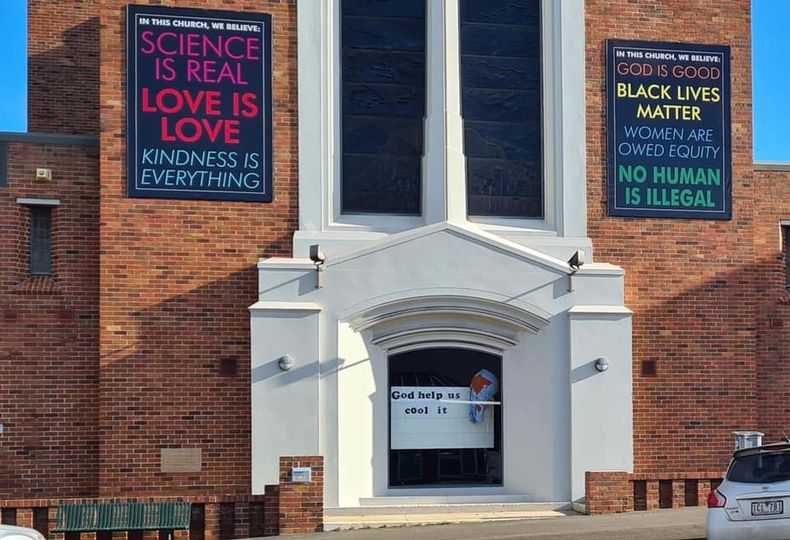


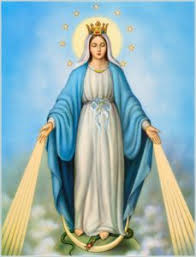

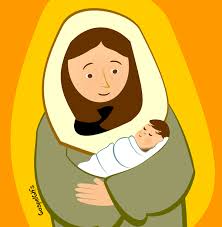
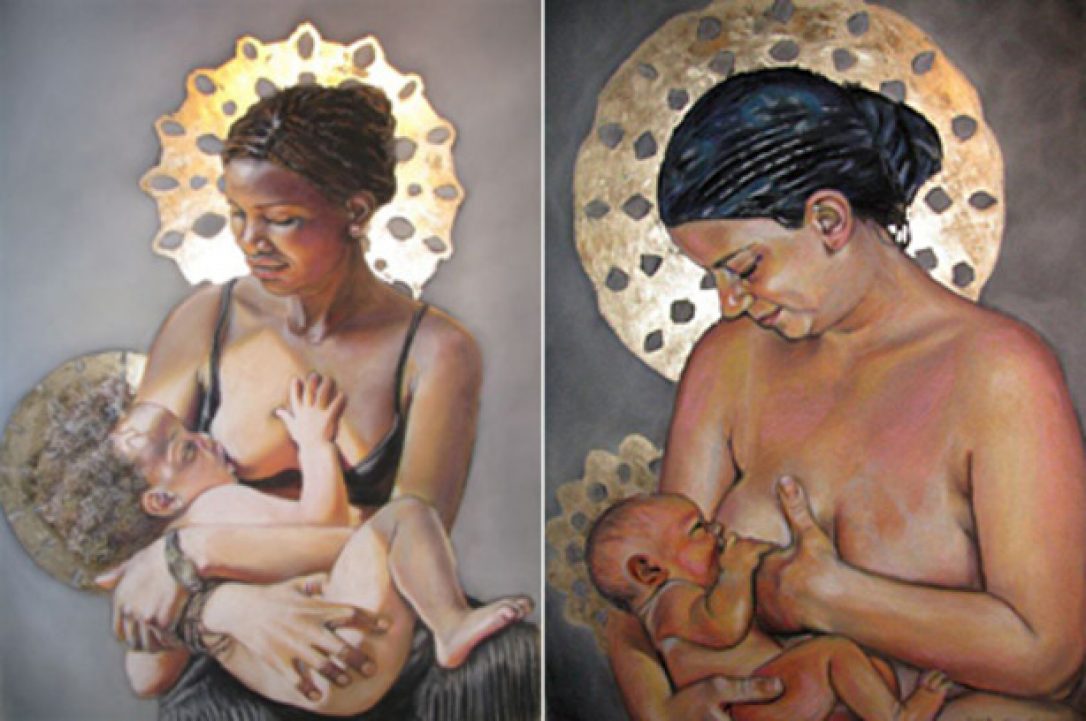
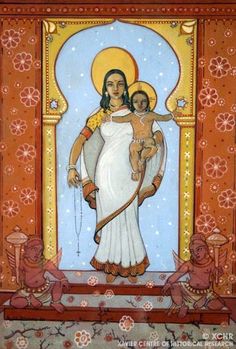
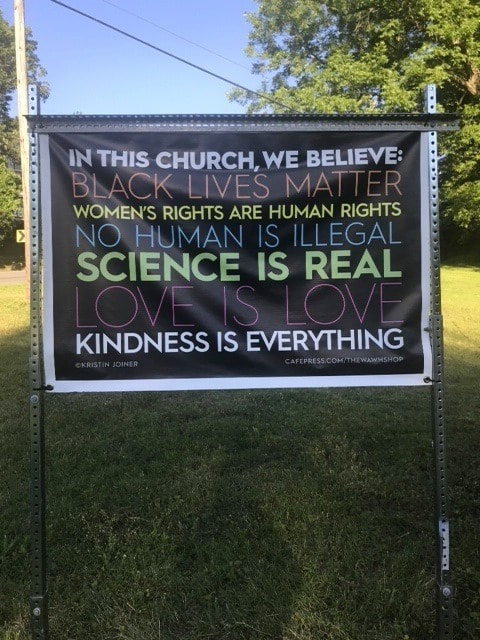
 RSS Feed
RSS Feed